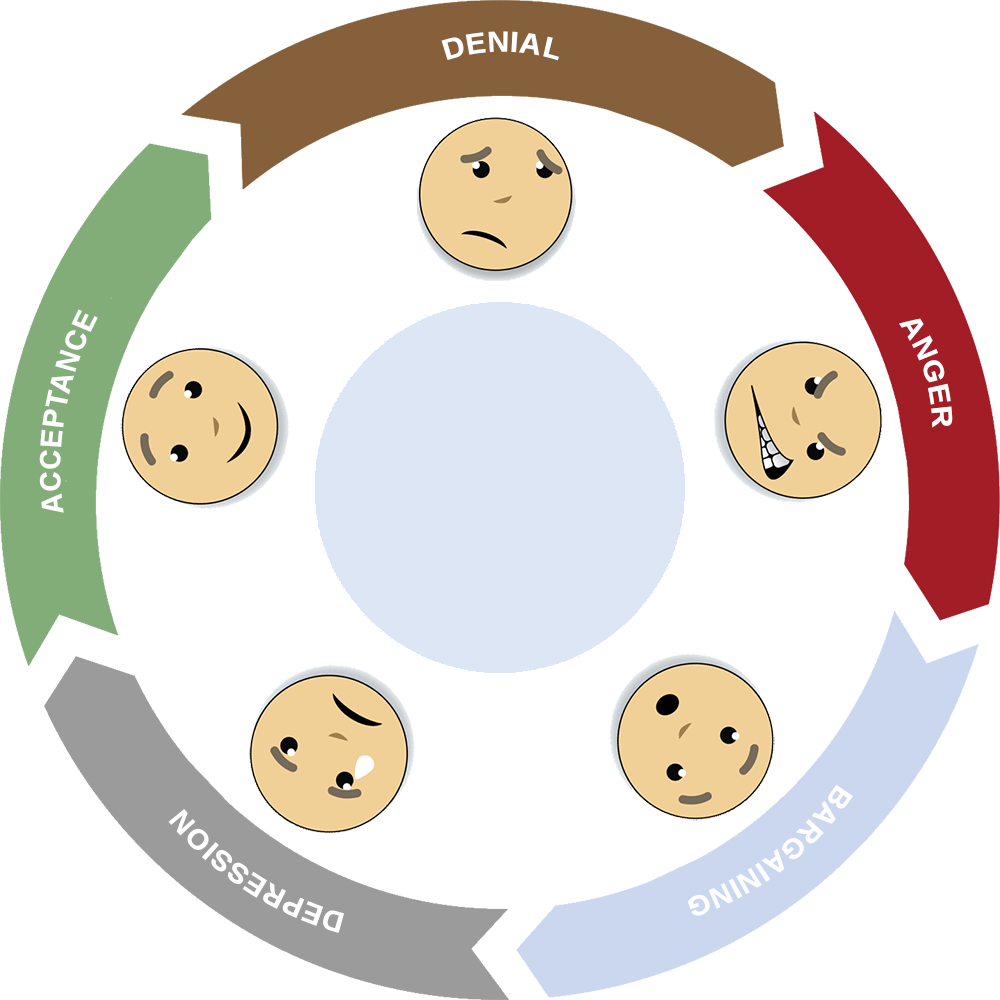Whatever the situation, you are likely to experience the following stages of loss. Please click on the stages of loss, in the cycle below, to read more about each one.

Denial
- A feeling that it isn’t happening.
- Hiding things from your friends and family.
- Fantasising and not dealing with reality.
Anger
- Overreacting and often acting in an irrational way.
- Feeling like you’re out of control.
- Being short-tempered and aggressive.
Depression
- Crying uncontrollably.
- Having no interest in anything.
- Feeling like you have a ‘mental fog’.
- Not sleeping well.
- Feeling withdrawn and cut off from others.
Acceptance
- Your emotions become more balanced – you can acknowledge both good and bad bits of your relationship.
- You find yourself more able to manage strong emotions.
- You have hope for the future.
You will not necessarily experience the stages of loss in the order shown above and you might visit each stage more than once. You might sometimes feel that you are taking one step forward and two steps back. The feelings you might experience, whether mild or intense, are all a normal part of divorce and separation. However, if you feel that you’ve been stuck in a particular stage for some time, you might want to consider seeing a counsellor to help you through the process.
Remember: understanding the stages won’t make the pain go away, but it might help you realise that this is a normal process that other people go through as well.
Where is your child in this? How is your child experiencing your separation?

